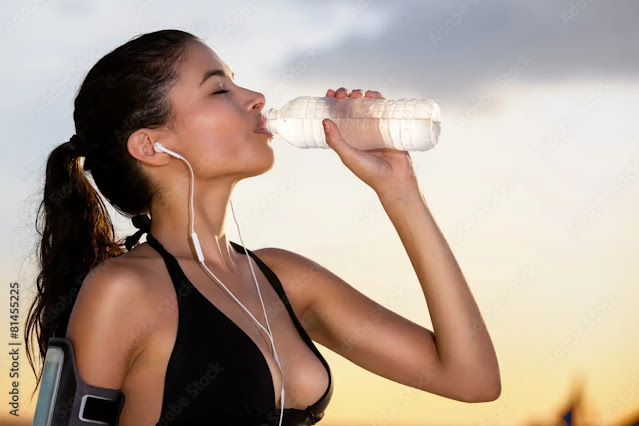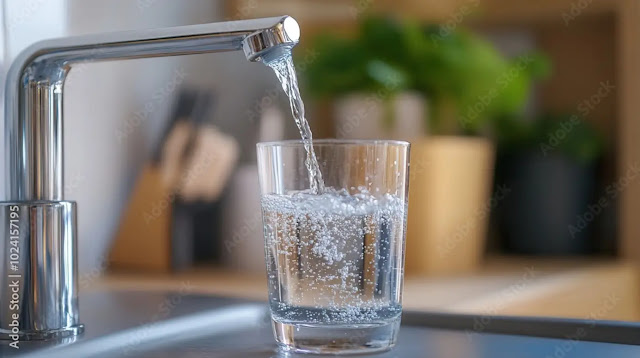How to Drink Water the Right Way?
Best Times, Quantities, and Safety Tips
 |
| Start your hydration journey with clean, refreshing water |
Water is life, but did you know that how you drink water matters as much as drinking it? Many people think just drinking any water is fine, but even clean-looking water can be unsafe. Drinking water at the wrong times or in excess can also affect your body. Let’s dive into the facts about drinking water the healthy way!
 |
| Drinking water after waking up rejuvenates your body |
Why Water is Important for Your Body
 |
| Water supports digestion, skin health, and overall body function |
Water makes up about 60% of your body weight. Here’s why it’s essential:
- Keeps your body temperature balanced
- Helps remove toxins through urine and sweat
- Improves digestion and nutrient absorption
- Makes your skin glow
- Keeps your joints moving smoothly
💡 Fun Fact: The average person loses about 2.5 liters of water daily through sweat, urine, and breathing.
What Happens If You Don’t Drink Enough Water?
 |
| Dehydration can lead to serious health problems if ignored |
Failing to stay hydrated can lead to serious health risks. Here’s what dehydration can do to your body:
Fatigue and Low Energy
Without enough water, your body struggles to deliver oxygen and nutrients, leaving you feeling tired and sluggish.Kidney Problems
Chronic dehydration can lead to kidney stones, infections, or even kidney failure because water is vital for flushing out toxins.Digestive Issues
Water helps keep your digestive system running smoothly. Dehydration can cause constipation and heartburn.Skin Problems
Not drinking enough water makes your skin look dull, dry, and prone to premature aging.Heart and Brain Risks
- Dehydration increases the likelihood of blood thickening, which raises the risk of strokes (AVC) or heart attacks, especially when the body is already under stress.
- Drinking a small glass of water before bed can reduce the risk of nighttime strokes by keeping your blood properly hydrated.
Heat-Related Illnesses
Dehydration increases your chances of heat exhaustion or heatstroke, particularly in hot weather or during physical activity.Weakened Immune System
Without proper hydration, your body cannot flush out toxins effectively, making you more vulnerable to illnesses.
💡 Did You Know? Studies show that even mild dehydration (losing 1-2% of body weight in fluids) can affect cognitive functions like memory and attention.
Best Times to Drink Water
 |
| Learn the ideal times to hydrate for better health |
Right After Waking Up
Your body gets dehydrated while you sleep. A glass of water helps kick-start your metabolism and refreshes your body.- Recommended Amount: 1-2 glasses (200-400 ml).
30 Minutes Before Meals
Drinking water before eating prepares your stomach for digestion and can help with portion control. Avoid drinking large amounts during meals.- Recommended Amount: 1 glass (200 ml).
Before and After Exercise
Hydrate before workouts to avoid dehydration. Sip water during exercise if you’re sweating a lot, and drink a glass afterward to recover.- Recommended Amount: 1 glass (200-250 ml) before and after.
Mid-Morning and Mid-Afternoon
A glass of water between meals keeps your energy up and helps you focus.- Recommended Amount: 1 glass (200 ml).
Before Bedtime
Drink a small glass of water at least an hour before sleeping. Avoid too much water right before bed to prevent waking up during the night.- Recommended Amount: Half a glass (100 ml).
When NOT to Drink Water
 |
| Drinking too much water during meals can affect digestion |
- While Eating: Drinking too much water during meals can dilute stomach acids, slowing digestion.
- Right Before Bed: Large amounts may interrupt your sleep with bathroom visits.
- With Spicy Foods: Water can intensify the burn. Opt for milk or yogurt instead.
How Much Water Do You Really Need?
Men: About 3.7 liters per day (15 cups).
Women: About 2.7 liters per day (11 cups).
Hot climates or active people may need more.
💧 Quick Tip: Check your urine! Pale yellow means you’re hydrated. Clear urine may mean you’re drinking too much water.
Water Quality Matters: Is Your Water Safe?
 |
| Filtering your water removes harmful bacteria and chemicals |
Not all water is as safe as it looks! Some can be polluted with harmful bacteria, chemicals, or heavy metals.
- Over 2 billion people worldwide drink contaminated water, according to the World Health Organization (WHO).
- Polluted water can cause diseases like diarrhea, cholera, and typhoid fever.
How to Ensure Safe Drinking Water:
- Boil water to kill bacteria and viruses.
- Use a reliable water filter at home.
- Avoid drinking from untrusted sources like rivers or wells unless treated.
💡 Did You Know? Bottled water isn’t always better. Some brands simply package tap water, and it might not be well-filtered.
Conclusion
 |
| Drinking water the right way improves health and boosts energy |
Drinking water the right way keeps your body energized, your skin glowing, and your health on track. Pay attention to when and how much water you drink, and always check your water’s quality. Hydration is key, but safe and smart hydration is even better!
Call to Action
💧 Ready to take control of your hydration habits and boost your health? Start by tracking your daily water intake, using a reusable water bottle, and ensuring your water is clean and safe.
If you enjoyed this guide, share it with your friends and family to spread awareness about healthy hydration! Don’t forget to subscribe to our blog for more tips on living a healthier, happier life. 🌟
Disclaimer
This blog is for informational purposes only and is not intended to replace professional medical advice. Consult your healthcare provider or a certified nutritionist if you have specific health concerns or conditions related to hydration or water quality.
Comments
Post a Comment
Thank you for your comment and please check our other blogs. We wait for you.